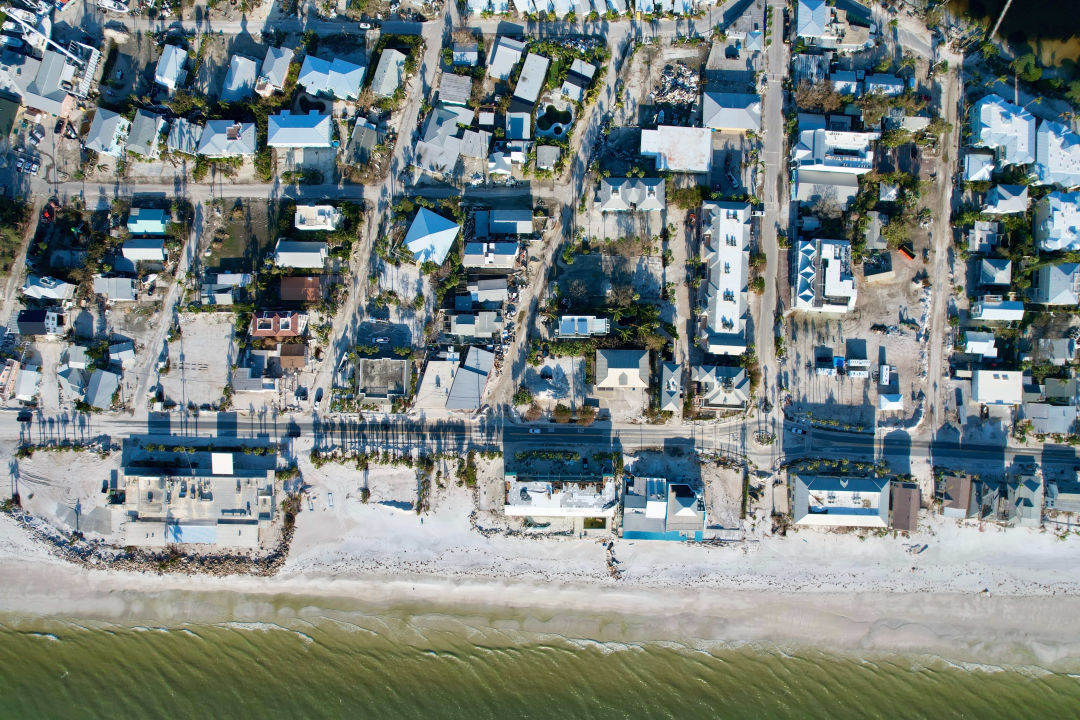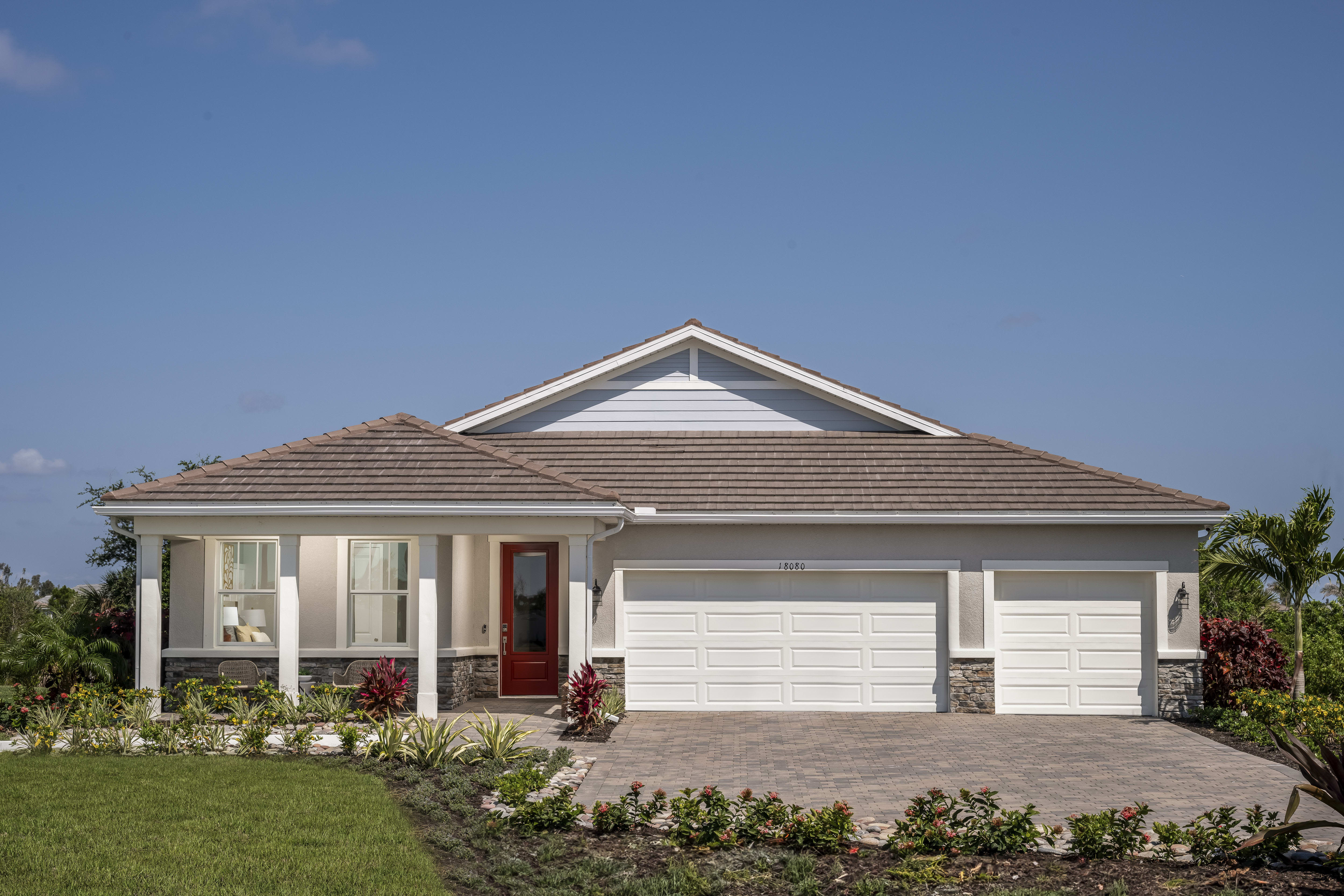New Real Estate Data Shows More Inventory, Longer Time to Sale

Image: Anand Pallegar
The real estate market in Sarasota and Manatee counties is feeling the effects of an ongoing cooldown, as September numbers show declines in both sales volume and pricing across residential property types.
According to the latest data from the Realtor Association of Sarasota and Manatee (RASM), the downturn may be linked, in part, to the aftermath of Hurricane Debby, which caused widespread inland flooding and disrupted the market. Adding to the mix, September is typically one of the slowest months in the industry, as part-time residents and tourists wait for the cooler weather to set in before returning to the area.
Sales have dropped across the board, with single-family homes and condos showing double-digit percentage declines. Sarasota County saw a 19.6 percent drop in single-family home sales compared to September 2023, with 513 homes sold. The median price for these homes rose slightly compared to last month, to $490,000 (3.2 percent), though year-over-year, median price dropped by almost 1 percent. Meanwhile, inventory has surged, with active listings increasing by more than 28 percent from this time last year.
Manatee County numbers tell a similar story, with 532 single-family home sales in September, marking a 14.2 percent decrease from the previous year. Prices in the county fell to a 2024 low, with the median price at $470,000, down almost 7 percent from September last year, when they were just under $504,000.
The condo and townhouse markets are also seeing dips. Sarasota County experienced a 21.2 percent decline in condo sales, while Manatee County saw a sharper drop, at 25.5 percent year over year.
Still, Sarasota's condo market saw a slight uptick in median sale prices, reaching $380,000—a boost from August’s median sale price of $345,000—but down 4 percent compared to September of last year. In Manatee County, condo prices dipped to $319,990, marking an 8.6 percent decline compared to September 2023.
Adding to the cooldown, properties are staying on the market much longer. In Sarasota, the median time to contract for single-family homes has jumped by 77.8 percent from a year ago, to 48 days. In Manatee County, the median time is now 47 days, an increase of 62.1 percent. The condo market tells a similar story, with homes taking even longer to sell—57 days in Sarasota and 73 days in Manatee. Condos and townhomes in Manatee County are now sitting at a six-month supply—a whopping 82 percent rise over September last year.
Much of the condo market is also being affected by new state laws, which are resulting in fee spikes for owners. Those fees aim to build up reserve funds or complete repairs ahead of the new legislation following the fatal collapse of the Champlain Towers in Surfside. If a building contains at least three habitable stories, a “milestone inspection” is now required once the building reaches 30 years old. Another milestone inspection is then required every 10 years after that. As a result, in many cases, condo owners are motivated to sell.
It’s still too early to weigh the full impacts of Hurricane Helene and Milton, which swept through the region in late September and early October. The storms' long-term influence on buyer and seller behavior may not be fully evident until the October and November reports are published.
Fondren Watts, a local real estate agent with Coldwell Banker, notes that people, namely investors, are also waiting on the outcome of the presidential election.
"Even before the storms, buyers were taking a step back due to the upcoming election," she says. "Historically, that's nothing new. In the month leading up to an election people tend to be more cautious."
As far as Hurricanes Debby, Helene and Milton, “it’s too soon to tell how they will impact tourism, our economy, and the housing market," Watts continues. "Everything’s in flux right now, especially as we rush to rebuild."
She notes that buyers are taking more time before making decisions, especially in light of rising interest rates and an increasingly cautious market, as evidenced by the increased time-to-sale numbers.
“There’s something to be said for buyers having that extra time to go through inspections," Watts says. "During the pandemic, so many people skipped that step. Now, we’re seeing a simmer down. Interest rates are part of that, but it’s also about making sure the home is the right fit and that repairs have been done.”
Despite these challenges, there is optimism. More inventory has given buyers more options, which could signal a shift toward a more balanced environment, where the intense seller’s market of previous years fades away.
Watts also points to another bright spot for buyers: the increased willingness of builders to negotiate. “In new construction, builders are open to negotiating now—not just on inventory homes, but on to-be-built homes as well," she says. "That’s a big change. Before Covid, builders weren’t open to price negotiations. Now, we’re seeing them offer incentives, like $10,000 toward closing costs, and in some cases, they’re saying, ‘Make us an offer.’ That’s a huge shift.”



